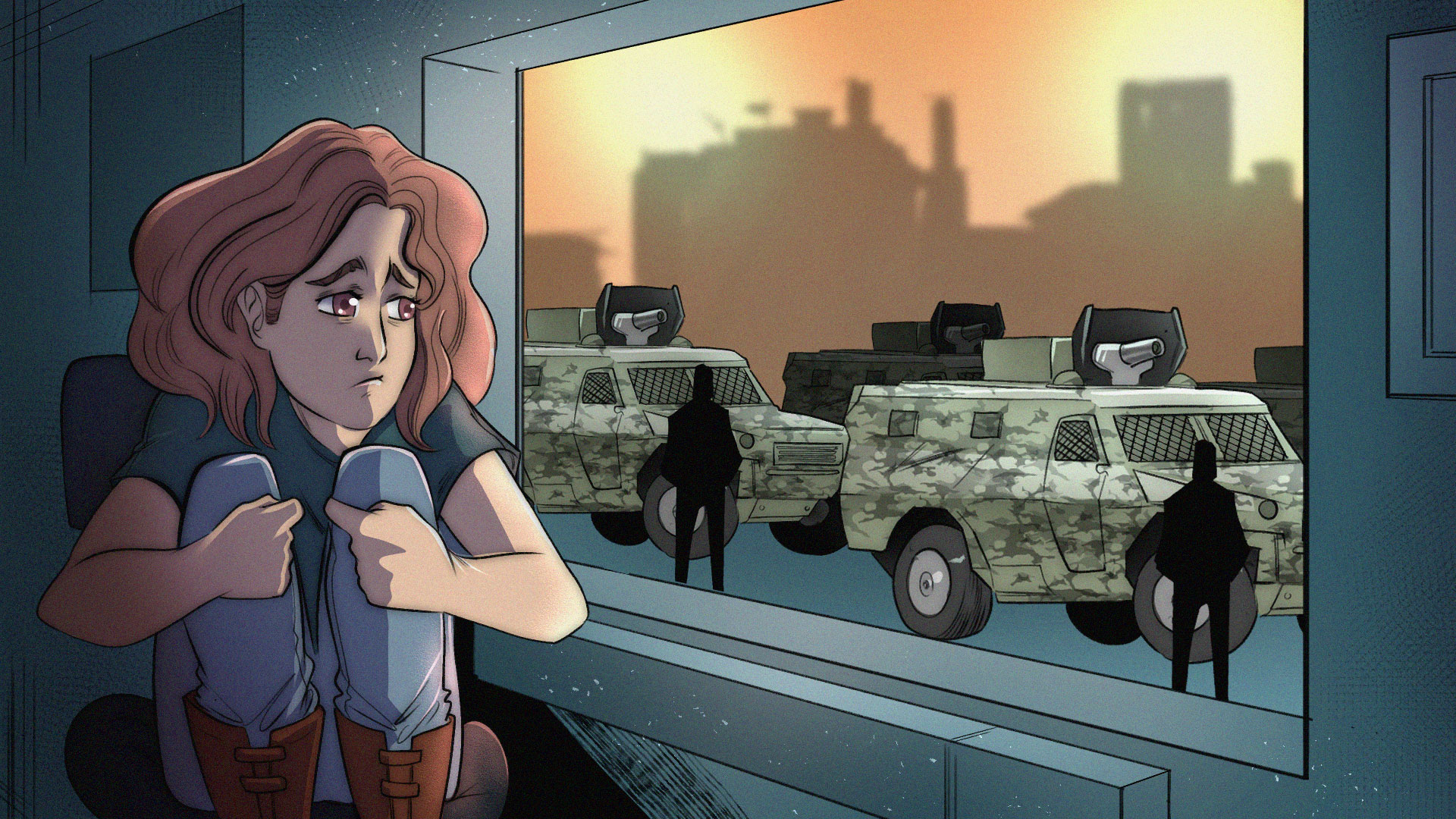


On April 30, 2019, the day when the final phase of the so-called “Operation Freedom” was set in motion in Caracas, Luisana Escobar and her neighbors were forced to leave their homes in Valencia, Venezuela, after a teargas canister exploded in one of the apartments of the building where they lived, setting it on fire.
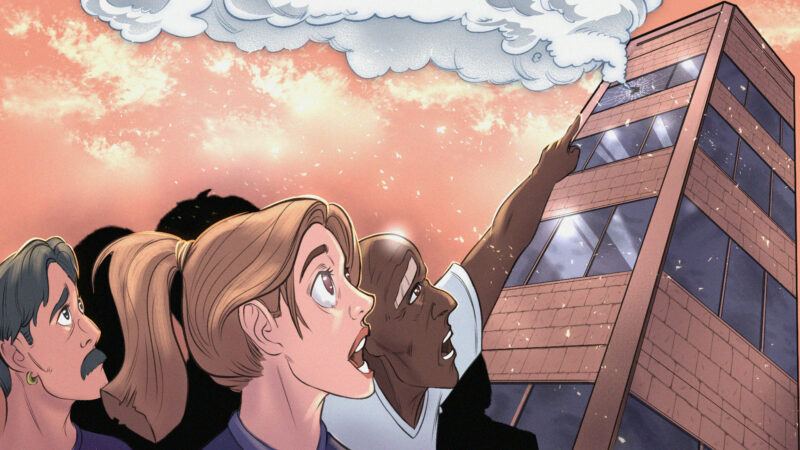 ILLUSTRATIONS: CARLOS LEOPOLDO MACHADO
ILLUSTRATIONS: CARLOS LEOPOLDO MACHADONo one knows how one they react when faced with extraordinary danger, particularly if forced to choose between acting on their survival instinct and staying alive or helping others. I had never had to think about it… until April 30, 2019, the day I woke up to the news that Juan Guaidó had secured the release of Leopoldo López from house arrest and had set in motion the “end of usurpation” phase of the so-called “Operation Freedom”, with the support of the military.
It took me by surprise, me, who thought I had seen it all.
I live in a residential building right on Avenida Universidad in the municipality of Naguanagua, state of Carabobo, in northwest Venezuela. It is a centric, busy area. It also happens to be the site of Fort Paramacay, also known as the 41 Armored Brigade, or just the military base of Valencia. That is why it became a hot spot for protests against the regime of Nicolás Maduro.
I had witnessed my fair share of newsworthy events from my bedroom window. In 2014, I saw how the crackdown on repression gradually intensified. In 2017, I saw demonstrators sustain pellet gun injuries and many being arrested and taken to jail in trucks. Even the police raided my house once, looking for who knows what.
— “Will this be the one, finally?” I could not help but wonder that April 30.
People gradually took to the street, as usual; however, at a certain point, things took a different turn. Some people from Nicolás Mauro’s regime announced on Twitter and other media that the “small group of military traitors” had been subdued and that the situation was under control.
A clash that was supposed to take place within the military themselves was now one between the armed forces and the protesters who poured into the streets, answering Guaidó’s call. My mom had watery eyes and would startle at the slightest noise; so, she took an anti-anxiety pill and we sheltered in the safest room in the apartment. The pill kicked in and she began to fall asleep. I turned the air conditioner on and the volume on the TV up. I wanted to escape reality for a while to try to process the many events that had unfolded so far that day.
But that quiet that I had crafted was short-lived.
A loud knock on the door brought us out of our trance. I got up and opened it.
Outside stood my dad, his shoes in one hand and a look of fear that I had seldom seen before on his face.
— “Grab some shoes and go downstairs with your mom. Now. Hurry up” he said as he bent down looking for a pair of shoes himself.
— “What on earth is going on? Can you please tell me?” I pleaded, completely baffled.
— “A tear-gas canister fell into one of the apartments and they can’t get it out because the owners are not home. Would you hurry up? Help your mom, quickly.”
— “Ok, but why do we have to leave?” I asked, more scared than confused.
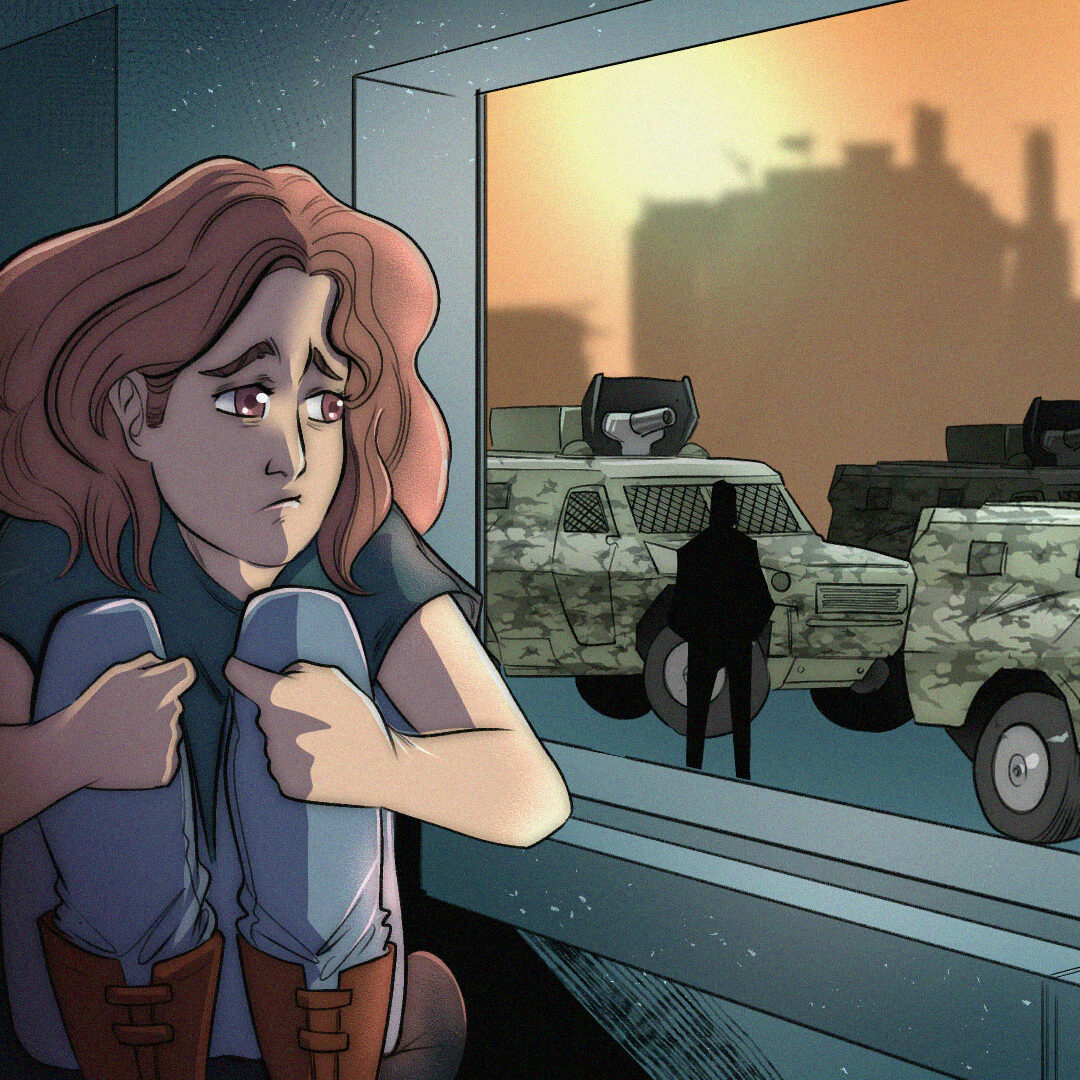
My heart was thumping in my chest as if it were someone trying to kick down a padlocked door. I was shaking. I could not move as fast as I wanted and I was barely able to catch my breath. I knew that the fire could spread to other apartments in an instant or, worse, reach the gas pipes and cause an explosion.
I dragged my mom down the stairs to try to go through the only exit that could spare the residents of 56 apartments from tragedy. The air reeked of tear gas mixed with smoke from the fire that had already started. That, combined with the effort involved in running, made breathing increasingly difficult.
During a fire drill, there is always someone coordinating the entire procedure and participants are urged to evacuate the premises in groups to prevent accidents. But this was not a drill. In the midst of chaos, which was exacerbated by the stepping, gasping and yelling of people, I just shoved and pushed, with no regard for the neighbors I greeted every morning, whom I left behind.
I was desperate to get clean air from the outside.
Out there, the scale of the threat was already apparent. A dense column of black smoke billowed out of the building, covering the apartments on the upper floors.
Including mine.
The smoke came from a broken window that was still raining shards of glass.
Just as that tear-gas canister had gotten inside our building in the middle of a protest, law-enforcement authorities and armed paramilitary groups were charging against protesters and their homes elsewhere in the country. That fire that I could see with my own eyes and that was getting worse with every second that passed was one of the many events that led the Venezuelan Observatory of Social Conflict to conclude that repression as a state policy had escalated in 2019. As per the observatory, 16,739 protests took place that year —a new record compared to previous years—, many of which were stifled by “groups of extermination” and left 67 people killed.
That day, the army shot at buildings where people chanted slogans, much in the same way as they had attacked and raided the houses of protesters in areas that used to be Chavista strongholds beginning on January 23, when Juan Guaidó was sworn in as interim president in Caracas.
I was petrified. Our neighbors tried to come up with a solution. Some even threw water under the door of the burning apartment in an attempt to put out the fire. Calling the fire department repeatedly seemed useless, as the main roads in the city had been blocked.
Then, one of our neighbors, a young man in his early twenties, approached my dad. He told him that he and three of his friends, who happened to be there with him, had practiced climbing for more than ten years and that they could pull themselves up to our apartment and then go down and enter the one that had caught fire.
The building’s windows were of the panoramic type, which made them easily accessible from both the outside and the inside. But the windows in my apartment, as well as in many others’, had been installed security bars, which made the task an impossible feat. The fire was on the fifth floor. They had three choices to get in: from the apartments below, from the apartments above —such as mine—, or from the one to the side. The only apartment that had no window bars was located on the fourth floor. Luckily, the owner had overheard the discussion and agreed to open his door so they could go up.
And up they went. They said that they would enter the apartment below, cross to the one next to it to hold on to the window bars, and climb up to go through the window that had exploded upon impact with the tear-gas canister.
One by one, they climbed the building from the outside and made it into the burning apartment. They had to make a transition of about 1 m. to get in. The last we saw of them was their silhouettes being engulfed in smoke.
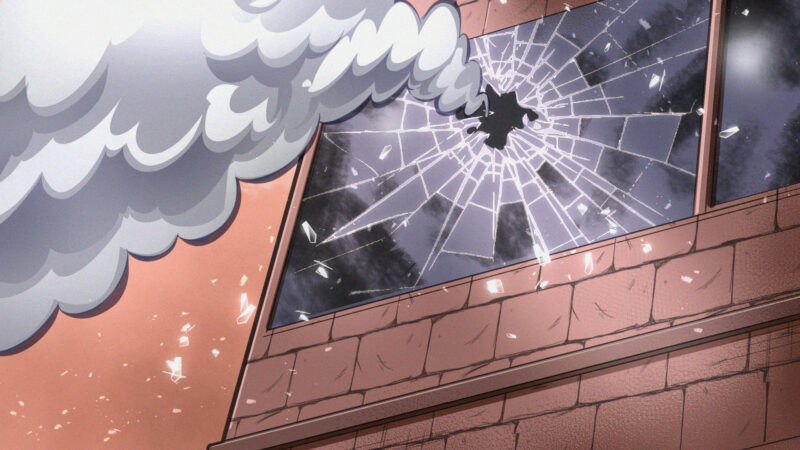
The clock was ticking.
One minute, two minutes…
All eyes were up. There was a lot of noise; still, one could hear some woman pray for the lives of the young climbers.
People from neighboring areas came to get a close look at one of the many faces of the repression of that day; meanwhile in Caracas and in the Regional del Centro freeway, protestors were being run over by armored trucks and fired pellets and tear gas.
The collective mood was one of gripping uncertainty.
The question “What’s going to happen to these guys?” lingered in the air.
— “Where are they? Why aren’t they coming out? Will they be all right?” people mumbled.
Five minutes or so had passed. The smoke from the fire did not seem to have faded, and toxic gases accumulating in the air could be deadly; they wore no protective gear; at that point, they must have ran out of oxygen, risking carbon monoxide poisoning, their airways obstructed. For those of us waiting, every single second felt like a stabbing pain in the stomach.
Suddenly, we saw someone’s head and body come out, but retracing their steps would prove more difficult: the smoke from the fire made it hard for them to find their way down; one could tell by their movements, which got slower and weaker.
The last one to get out was the one who looked the worst. He pulled more than half his body out of the broken window and held out his arms wide, as if he were drawing air into his lungs. Next out were his legs. He began his descent, but he was so slow that one feared each move could be his last. We all stood there watching, holding him up with our eyes, until he made it back to the apartment from which he had climbed up.
We still had no idea about what had happened up there, or if the risk they had taken had been worth the while. All that mattered was that they were safe, sound and out.
They were all sooty and sweaty and wearing a certain smile of relief, which meant that they had made it: they emptied a large bottle of water they found in the kitchen onto a burning washing machine and made sure to put out the fire entirely, thus preventing a tragedy from occurring.
My dad was moved to tears. He hugged them and I heard him say to the other neighbors:
— “I thought he was going to fall, that we were going to lose him.”
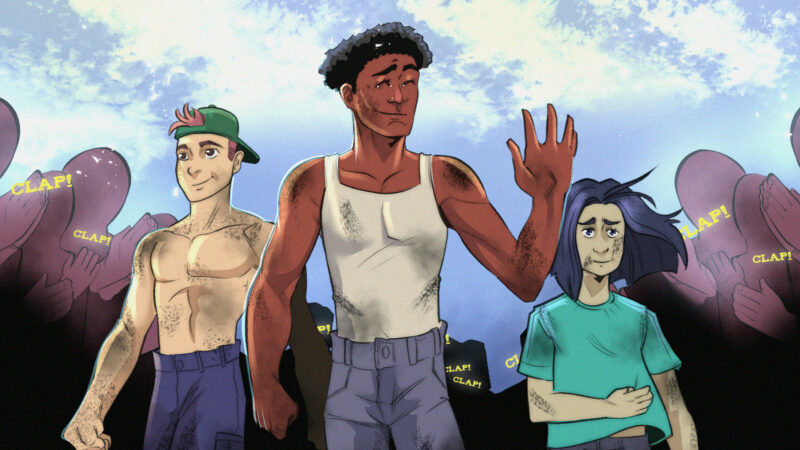
The feeling was one of absolute victory. A joint effort had helped save our homes. The remnants of the fire had extinguished well before the firefighters could get to the site. That sense of accomplishment stayed with us all day… a day that had started with Juan Guaidó in La Carlota Airbase and had finished with Nicolás Maduro seating in his official office in Miraflores and Leopoldo López seeking refuge in an embassy.
In the following months, public support dwindled, so much so that 80 percent of respondents to a Meganálisis poll said that they would not take to the streets if Guaidó or the National Assembly were to summon them to protest.
I, for one, added a new story to my list of life experiences. Sure, it was not a story about the day that changed the course of the country, but it taught me the true value of living in a community.

This story was written within the framework of the first edition of the Training for Journalists program of La Vida de Nos.
404 readings